Investing for Beginners Canada for 2024
Investing involves committing your money to a cause with the hope that you will get something back in return. As a beginner in the investment world in Canada, you can invest in virtually anything, including stocks, real estate, businesses, or any other asset class. Your investment decisions can also take online or offline form, depending on which you find acceptable.
While investment is one of the best ways to build wealth, it can also be risky. Investment can open the floodgate of wealth but there is no 100% assurance that you will get the desired ROI. You may even end up getting nothing back or go into debt. So, you must prepare your mind for eventualities when venturing into investment in Canada or anywhere else for that matter.
Stocks can lose value; markets can shift; businesses can fail. So, investment can lead to disappointments.
Our Online Investing CA guide site is a good place to start learning about investments and brokerage accounts. Browse the top brokers listed below for reviews that are honest, transparent, and comprehensive.
Best online investing platforms in Canada
Quick online investing resources

Stock Investing
A breakdown on how to invest in the stock market for beginners canada, learn stocks basics of trading stocks.

Currency Trading
Beginner's guide on leading currency pairs to trade, allowing you to explore forex market before investing.

Crypto Investing
Learn how to start investing in cryptocurrency. Invest in the best crypto projects like Bitcoin,Ethereum, and more.

Online Brokers
Reviews on leading online brokers in Canada, helping you to choose good brokers and avoid scams.
Types of investment in Canada
There are so many types of investments you can add to your portfolio and you should choose carefully so that you do not end up making the wrong decisions. Note that the profit or loss you can get from your investments depends a great deal on the investment types in your portfolio. Check below for the various types of investments you can consider when building your portfolio in Canada.
- Stocks: Investing in stocks will allow you to own a share of a company, which can also be called shares. You can buy or sell shares on a stock exchange. Canadian stock traders can invest in stocks from across the globe too.
- Exchange-traded funds (ETF): This investment option combines funds from several investors and invests the combined funds in several assets, including bonds and stocks.
- Mutual funds: They combine funds from investors and also hold several investments. You will be responsible for managing your ETF investment, while a fund manager will take up the responsibility of managing your mutual funds. Studies show that up to 42% of investors are interested in mutual funds.
- Bonds: A bond can be defined as a long from a Canadian investor to its government or a Canadian company. The government or company trades with the money to earn interest and the interest is paid back to the investor over a given period. A bond is a form of fixed-income investment.
- Derivatives: This category of assets gets their value from the volatility of another asset, like stock movement with the two most common types being futures and options.
- GICs (Guaranteed Investment Certificates): They are similar to bonds. It involves lending your money to a financial institution for a given period, after which you will be paid back your investment with a given interest. The interest increase depends on the particular financial institution you invest with.
- REIT (Real Estate Investment Trusts): These are companies owning real estate and you can invest in them by buying shares in the companies. It is similar to stock investment
- Forex: Forex is an acronym for Foreign Exchange and it permits investors to buy or sell international currency pairs.
- Cryptocurrency: The crypto market works just like the forex market, in which investors buy or sell digital currencies.
How savings differ from investment
Both savings and investment help the individual build a financial safety net. However, the approach to either is different. Savings mean putting money away somewhere safe to enable you to use it for a specific purpose in the future.

Investing involves purchasing assets and accepting the associated risks. You invest with the hope that the money will increase in value over time but the money you save will rarely increase in value except if you add more money. The money saved is the amount you will get back when you need the money.
Savings in banks can earn interest, but the interest rates differ across banks and rarely amount to much with the average being 1.29% in 2023. The average returns on investment can be up to 9% per annum and can even go way higher. Some stock investment opportunities are known to yield up to 40% profit per annum. So, investment is better for profit than savings, though, the former is characterized by higher risk.
In the next section, we will show you some of the important things to consider when venturing into investments.
Things to consider when investing
Invest what you can afford to lose
There is no 100% assurance that your investment will yield the desired ROI. Risks also vary across investment opportunities. To help you manage investment risks better, you should only invest what you can afford to lose. If things go south, you will not end up with heartbreak.
You should never borrow money to invest. If that investment fails, you may end up with depression since you may find yourself with a debt you cannot pay back easily. Depression can lead to suicidal thoughts too.
Get an emergency fund
The money for investment is money you are willing to set aside for a long time. To avoid touching the investment money, make sure you have an emergency fund set aside until the investment matures. It will do you a world of good.
The emergency fund can cater to important needs and unexpected expenses like sudden job loss, car repairs, etc. This way, you will not end up in debts, wants, and penury when investing.
Some experts suggest that the emergency fund should be large enough to cater to your needs for at least three to six months. The emergency fund will give you peace of mind and help you to live through life relatively conveniently while waiting for your investment to mature. The emergency fund acts as a cushion to protect you in case the investment fails.
Do your homework
Before you take up any investment opportunity, first carry out in-depth research about the investment opportunity. This will give you an idea of how much risk you will be exposing yourself to in that particular investment.
Experts declared that it is better to invest in a business you know about. This way, you will not be at sea regarding the business and will also be able to make intelligent decisions about the viability of the said business.
Good knowledge about a business will always give you an edge, helping you to know when to invest and avoid investing in a business.
An investment strategy is important
Before venturing into investing for beginners Canada, you should first determine the right strategy to adopt to enable you to make the expected return from your investment. The strategy can help guide you and assist you in making investment decisions. The strategies can show you if it is time to buy or sell that asset you are interested in.
There are so many investment opportunities you can include in your portfolio and using a reliable investment strategy will help you to pick the right ones among them.
There are three broad categories of investment strategies for anyone interested in investing for beginners Canada and we will highlight the categories below:
- Investing on your own
- Investing in a robot
- Investing with a financial advisor
Each of the investment methods described above has its pros and cons and we will show you these positives and negatives below.
Investing with a financial advisor
A financial advisor is a professional capable of managing your investment portfolio for you. You can also call the professionals “wealth advisory services.” You can find so many of them operating in Canada today, helping Canadian investors to find a way out of the complex investment world. The professional will be solely responsible for managing and building your investment for you, while you sit back to get the accrued profit.
If you want to venture into investing for beginners Canada but do not know how to manage your investment by yourself, you will do well to opt for this investment method. If you know how to manage the investment but do not have the time to commit to it, professional investment managers will be most willing to come to your aid.
Investing in a robot
Another name for an investment robot is an algorithm and some investment brokerage service providers offer it. It is a form of automated investment service and you can also call it a Robo-advisor. The service may sound similar to robot investment management but your investment will not be solely handled by a robot. It involves investment management via a sophisticated investment algorithm. Check below for information on how the investment algorithm works:
- Open an account with the broker offering this service by filling out an online application.
- Provide answers to a series of questions regarding your financial goals and the extent of risk you can bear with your investment.
- The investment algorithm will use the information you have provided to provide you with a portfolio.
- The RoboRobo-advisor will then monitor your investment account using complex algorithms. It works by moving investments in and out of your investment portfolio via a technique called portfolio rebalancing.
If you can trust your money to a digital service instead of managing it by yourself, this method is the perfect choice for you.
Investing on your own
This is a self-directed investment option. It enables you to take full control of your investment process. It can also be called DIY investing. Some believe that this method is the best out there since you will be the one to determine when to buy or sell an asset.
To adopt this method, you will need to open an account with an investment broker and add assets to your portfolio by yourself. You will have to carry out in-depth research before choosing the set of assets to include in the portfolio. You will be responsible for trading and monitoring your investment.
You will also be the one to adjust the investment as you deem fit with no help from anyone. Bear in mind that this investment option will require that you do a lot of research and researching can take a lot of time from you. You must ask yourself if you can spare adequate time for research before choosing this investment option.
Regulation of investment platforms in Canada
In Canada, the regulation of investment platforms stands as a robust cornerstone of the financial landscape. Stringent oversight measures are in place to ensure the security and transparency of investment activities. These regulations are orchestrated by authoritative bodies such as the Canadian Investment Regulatory Organization (CIRO), which diligently monitors and enforces compliance standards for investment platforms.
Investors can find reassurance in knowing that their financial interests are safeguarded through these regulatory frameworks. As a result, individuals seeking to engage with investment platforms in Canada can navigate the landscape with confidence, trusting in a system designed to uphold integrity and protect their investments.
The amount required to start an investment in Canada
Before venturing into investing for beginners Canada, you need to determine how much you will need to start the investment. Note that the category of investment service you are interested in will determine the amount you will need to kick start the investment.
The broker you register with can also determine how much you will have to spare for the investment. Many brokers do not have minimum deposit amounts, but there are some differences in this rule. So, find out what obtains in the particular broker before you register an account there. When venturing into investing for beginners Canada, go for those brokers that permit their investors to invest a very small amount of money.
In addition, find out about the portfolio minimum demanded by the broker; this also varies from one broker to another. The minimum investment amount can differ from one type of investment to another. Some assets can require different minimum intent amounts from others too. If you prefer to invest in a mutual fund in Canada, for example, you will need a minimum of $500 to begin the investment.
Online investing Canada FAQs
How much money do I need to start investing for beginners in Canada?
You do not need much money to begin. However, the amount you need depends on the company you want to invest in and the type of investment you are interested in.
Should I know how to invest before I venture into any investment?
No, you do not necessarily need special investment knowledge to start an investment. Instead of learning about how to invest, you can simply hand over to financial experts to manage the investment on your behalf.
Can I borrow money to start an investment?
It is not advisable to start investing with borrowed funds. Things can go wrong with the investment and using borrowed funds can put you in great debt.
How easy is an investment for beginners Canada?
Investing for beginners Canada is not so difficult. You can hand it over to a professional to help you or you can learn about how to invest so that you can manage your investment by yourself. It is also possible to learn about investing for free.
Final Word
Navigating the world of online investing in Canada may seem daunting at first, but these frequently asked questions provide clarity on the key aspects. Starting with a modest amount is feasible, as the required funds depend on your chosen investment and company. It’s not essential to possess in-depth investment knowledge to initiate an investment; you can entrust financial experts to manage your investments on your behalf, if desired. However, venturing into investments using borrowed funds is discouraged, as it can lead to substantial debt if the investment doesn’t perform as anticipated.
For beginners, investing in Canada is accessible and manageable. Whether you opt to seek professional assistance or embark on a self-learning journey, numerous avenues exist to enhance your understanding of investing. Learning about investments doesn’t have to be a costly endeavor; free resources are available for those keen on expanding their investment acumen.
For more insights into investment opportunities, including the realm of forex trading in Australia, feel free to explore the broader resources available.
Remember, informed decisions and a gradual approach are key when entering the world of online investing. Take the time to understand your options, assess your risk tolerance, and consider seeking advice from financial experts if needed. Happy investing!









